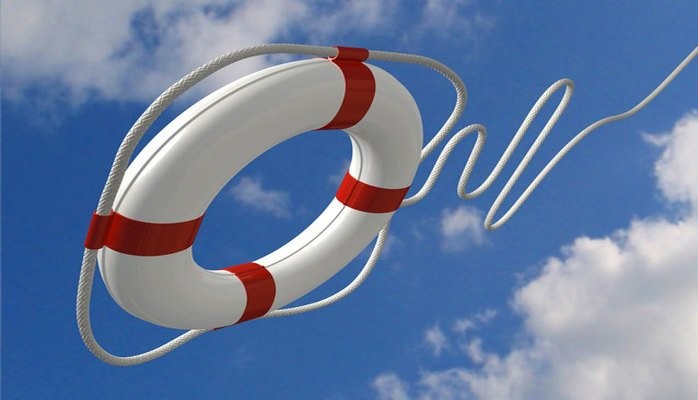
Traveling is an exhilarating experience, offering us the opportunity to explore new horizons, immerse ourselves in diverse cultures, and create lifetime memories.
However, the unpredictability of travel necessitates a solid plan to tackle emergencies that might arise. Preparing for the unexpected ensures that adventures remain enjoyable, and challenges are managed efficiently.
Here’s how to approach emergency planning for your travels, ensuring peace of mind on your global adventures.
Keep on reading!
Understanding the Importance of Emergency Planning
Emergency planning is crucial for any travel itinerary. It’s about being prepared for unexpected events such as natural disasters, health emergencies, or even losing your passport.
Having a plan ensures you can respond effectively, minimizing stress and potential negative impacts on your trip.
Researching Your Destination
Knowledge is power, especially when it comes to traveling. Understanding the local climate, health risks, cultural norms, and legal requirements can significantly enhance your preparation.
This includes checking for travel advisories, understanding local customs, and being aware of any potential safety concerns in your destination.
Health and Safety Measures
Prioritizing your health and safety is paramount. This includes:
- Vaccinations and Medications: Consult a travel clinic or your doctor to discuss any necessary vaccinations or medications based on your destination.
- Travel Insurance: Investing in a comprehensive travel insurance policy that covers medical emergencies, trip cancellations, and loss or theft of belongings is crucial for financial protection and peace of mind.
Compiling Essential Documents
Gather and make copies of essential documents, including:
- Passport and Visas: Ensure your passport is valid for at least six months beyond your travel dates and secure any necessary visas.
- Travel Insurance Documentation: Keep a digital and physical copy of your insurance policy.
- Emergency Contacts: Compile a list of emergency contacts. For example, road accidents are quite common. So, you must have contacts of professional car accident attorneys. These experts can help you guide through a difficult situation considering your best interest.
Packing for Emergencies
Your luggage should include a few essentials to help manage unexpected situations:
First-Aid Kit: Pack a basic first-aid kit including bandages, antiseptics, and any prescribed medications.
Backup Financial Resources: Carry a backup credit card or emergency cash in a separate location from your wallet.
Digital Backups: Store digital copies of important documents in a secure online location accessible from anywhere.
Staying Informed and Alert
Staying informed and alert while traveling is essential for navigating potential risks and ensuring a safe journey. It involves actively seeking out information about your destination, including local news, weather forecasts, and any travel advisories. This proactive approach enables you to be aware of any potential dangers, such as political unrest, natural disasters, or health outbreaks.
Utilizing technology can aid in this effort; downloading local news apps, following relevant social media feeds, and signing up for emergency alerts can keep you updated in real-time. Being informed allows you to make timely decisions, avoid hazardous areas, and adjust your plans as necessary to maintain safety.
Communication Plan
Establishing a reliable communication plan is essential, especially in remote or high-risk areas:
Local Connectivity: Consider purchasing a local SIM card or a global roaming plan to ensure you can make calls, send texts, and access the internet.
Check-ins: Arrange regular check-ins with someone back home to confirm your safety and whereabouts.
Responding to Emergencies
Despite the best preparations, emergencies can still occur. Here’s how to respond:
Medical Emergencies: Know the location of the nearest hospital or clinic and have your travel insurance details handy.
Natural Disasters: Familiarize yourself with the safety procedures for natural disasters common in your destination.
Lost or Stolen Items: Report any theft to the local police and your embassy if necessary. Keep a separate record of your credit card numbers and the customer service phone numbers to report them lost or stolen.
Post-Emergency Actions
After an emergency, take time to:
Document Everything: For insurance claims or reports, document the incident thoroughly with photos, descriptions, and any police or medical reports.
Seek Support: Utilize resources such as your country’s embassy or consulate for assistance in serious emergencies.
Reflect and Learn: After the situation has resolved, reflect on the experience and consider any adjustments for future travel plans.
In the End…
Emergency planning might seem like an overwhelming addition to your travel preparations, but it’s an essential aspect of traveling smart and staying safe. By taking proactive steps to prepare for the unexpected, you can ensure that your travels are not just enjoyable but also secure.
Remember, the goal of travel is to explore and experience the world with confidence, knowing you’re well-prepared to handle whatever comes your way.
Traveling is about creating stories to tell, not crises to manage. With the right emergency plan in place, you’ll be in a much better position to ensure that your travel stories are about adventure, discovery, and joy, not the emergencies you overcame.